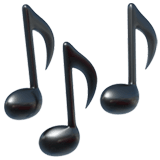
All you wanted to know about Luxembourgish language
Luxembourg is widely known for its important role in the global financial markets. However, aspects of its culture remain relatively unknown to many, such as one of its official languages: Luxembourgish. In the following lines, we will thus venture into this language, unveiling its history, current use, main characteristics, and other relevant data.
If you're here, you're likely wondering, what exactly is the Luxembourgish language? Primarily spoken in Luxembourg, as well as in some neighbouring communities in Belgium, France, and Germany, the national language of a small European country has been spoken widely outside of it! As of early 2021, Luxembourgish was spoken natively by approximately 275,361 people, with an estimated 400,000 speakers worldwide.
Is Luxembourgish language a dialect or not?
Yes, Lëtzebuergesch is a Moselle Franconian dialect from the Germanic language family. But only linguistically speaking. Originating in the Moselle region of France, Luxembourgish has been spoken since around 1000 AD! The oldest known text written in this language is the Codex Mariendalensis, dating back to the 13th century.
Mix and match
Luxembourgish blends elements of French and German, enriched with many French words and expressions.
It was mainly spoken until the 19th century, when it was considered more of a dialect known as Lëtzebuerger Däitsch, meaning "Luxembourg German." However, as the dialect gained popularity, it evolved into the native language of the people living in the country. In 1984, Luxembourgish was officially recognized as a national language alongside the other two official languages, German and French.
Today, Luxembourgish is the mother tongue for the majority of Luxembourgers. As of early 2021, approximately 275,361 people spoke Luxembourgish natively.
Evolution of the Luxembourgish
Although relatively recent in terms of official recognition, the Luxembourgish language boasts a long and rich history. Let's explore its linguistic path through the ages.
Luxembourgish historically and linguistically belongs to the Moselle Franconian dialects of the West Central German group. This dialect spans regions including Trier, Luxembourg, and adjacent areas. Together with Ripuarian Franconian (Cologne) and Rhenish Franconian (Mainz and Frankfurt), it forms the West Central German dialect continuum, distinguished by certain pronunciation features.
In 963, Count Siegfried of the Ardennes acquired a fort named Lucilinburhuc (the little fortress), which would give its name to the city and country of Luxembourg. This event did not alter the multilingual nature of the region, inhabited by a Celto-Germanic mix since Celtic times and later integrated into the Roman Empire for about 500 years. After the Frankish invasion in the 5th century, the Western Franconian dialect established itself in the region, coexisting with Latin, the medieval lingua franca.
Little is known about Luxembourgish during the medieval period due to the scarcity of documents. However, the Codex Mariendalensis from 1320, containing the epic poem Yolande de Vianden by Brother Hermann von Veldenz, is crucial for understanding the language in Luxembourg and the Moselle Valley in the 13th and 14th centuries. This text displays distinctive Moselle Franconian features, the precursor of modern Luxembourgish, such as the use of "h" in pronouns and certain phonetic evolutions.
Although the roots of Luxembourgish trace back to the early Middle Ages, its sociolinguistic concept as a distinct language emerged only in the late 19th century. This period was marked by a national awakening across many European countries, and Luxembourg was no exception. Until then, Luxembourgish was considered mainly a regional dialect of West Central German, spoken daily but lacking official status or significant literary recognition.
Nationalism in the 19th century played a crucial role in fostering Luxembourg’s national and linguistic identity. The Industrial Revolution, socioeconomic changes, and political movements led to a resurgence of interest in local languages and cultures. In Luxembourg, this resulted in a greater appreciation for Luxembourgish, seen as a symbol of national identity.
This linguistic awakening manifested in the production of the first literary texts in Luxembourgish. Writers and poets began using Luxembourgish for literary expression, elevating its status and promoting its use in literature. Notable works from this period include those of Michel Lentz, regarded as Luxembourg’s national poet, whose works celebrated the Luxembourgish identity and landscape.
First grammar manuals!
Efforts to codify Luxembourgish also began during this time. The first grammar and dictionaries were published, providing a written and normative foundation for the language. These works were fundamental in establishing Luxembourgish as a language with its own grammatical and orthographic rules, distinct from other West Central German dialects.
The Nazi occupation during World War II significantly impacted Luxembourg’s national and linguistic identity. The Germanization policy imposed by the occupiers was fervently resisted by Luxembourgers, who saw the use of Luxembourgish as a form of resistance and affirmation of their national identity. This linguistic resistance helped to strengthen the prestige and importance of Luxembourgish in the post-war period.
The official recognition of Luxembourgish culminated in the 1984 law declaring it the national language of Luxembourg. This legislation marked a milestone in the language's history, providing a legal framework for its promotion and official use. The 1984 law not only consolidated the status of Luxembourgish, but also boosted its teaching in schools and use in public administration and media.
In recent decades, modernization and social mobility have led to greater uniformization of Luxembourgish, especially towards the dialect spoken in the central part of the country, in the Alzette Valley. Despite this trend towards standardisation, local dialectal variations persist, reflecting Luxembourg's rich linguistic diversity.
In recent years, Luxembourgish has experienced a renaissance, especially due to its use as a lingua franca on social media and mobile messaging. The 2008 law on obtaining Luxembourgish nationality provided a new impetus.
Way to citizenship lies through courses
Interest in learning Luxembourgish has peaked in recent years, with the number of Luxembourgish courses at the Institut National des Langues more than tripling between 2008 and 2022.
Languages used in the main areas of life in Luxembourg
Luxembourgish coexists with other official languages of the country, French and German, as well as various languages spoken by a significant number of foreign residents. To understand this landscape, we will refer to a 2021 study conducted by the state statistics department.
In the private conversations
With colleagues at meetings
In the classroom from the young age
Television, radio, papers, and media language
When talking to the government
Political debates and life
In the supermarket
At the theater and in the cinema
As well as being a cornerstone of Luxembourg's national identity, Luxembourgish is also spoken in several neighbouring regions, including France, Germany, and Belgium. There is a name, Benelux, for a union of countries surrounding Luxembourg that work together on many projects. There is also a place for linguistic exchange.
The provinces of Belgium and the surrounding regions share historical and cultural ties with Luxembourg, and the local population uses the language in their daily lives. Overall, between 15,000 and 20,000 people in the Arelerland region of the province of Luxembourg, which borders Luxembourg, speak Luxembourgish as their mother tongue. Furthermore, nearly 34,500 people in this region have a basic knowledge of Luxembourgish.
In France, Luxembourgish is spoken in the northeastern region near the Luxembourg border, particularly in parts of the northern Moselle department. The language has historical roots in this area, and although it is less common than in Luxembourg itself, some communities still use it.
Luxembourgish is also spoken in Germany, especially in the Rhineland-Palatinate and Saarland regions, which are close to the Luxembourg border. The linguistic influence extends to these areas due to historical migrations and cultural exchanges. In these German regions, Luxembourgish is spoken primarily in family settings and by older generations who maintain the linguistic traditions.
Outside the union?
Outside Europe, Luxembourgish can also be heard in other parts of the world. Due to significant emigration from Luxembourg to the United States (in the 19th century) and Romania (in the 9th and 14th centuries), Luxembourgish spread to the American Midwest and Transylvania, where variants of the language can still be found today.
Linguistic characteristics of the Luxembourgish language
Coming towards the end of our tour, we are going to take a look at the main characteristics of the language, focusing on several elements such as phonetics, grammar, and vocabulary. We will not go into detail about the entire structure of the language, the goal is to give you a sense of what Luxembourgish sounds like and its similarities and differences with French and German.




| Luxembourgish | Transcription | English |
| Moien | /ˈmoɪən/ | Hello |
| Äddi | /ˈædi/ | Bye |
| Wéi hesch du? | /veɪ hɛʃ du/ | What is your name? |
| Wéi geet et? | /veɪ ɡeːt ɛt/ | How are you? |
| Wann ech gelift | /vɑn ɛç ɡəˈlɪft/ | Please |
| Merci | /mɛrˈsi/ | Thank you |
| Pardon | /ˈpardɔ̃/ | Excuse me |
| Zum Wohl! | /tsʊm voːl/ | Cheers! |
| Ech hun dech gär. | /ɛç hun dɛç ɡɛːr/ | I love you |
If the above didn't tell you anything, here is a table with some Luxembourgish words and expressions that will give you an idea of the language.
Where to learn the Luxembourgish language in the Grand Duchy?
Learning Luxembourgish can be quite a challenge, especially if it differs significantly from your native language. However, there are various ways to improve your Luxembourgish language skills, whether you prefer independent study or structured courses.
For those who prefer to learn at their own pace, there are plenty of resources available. You can immerse yourself in Luxembourgish by listening to radio programs, watching television shows, and exploring podcasts, movies, or YouTube videos in the language.
If you want a more guided approach, numerous institutions and private tutors offer Luxembourgish courses in the Grand Duchy. These courses can be taken in person or online, catering to different learning styles and schedules. Group classes provide a collaborative environment where you can practise speaking and listening with fellow learners, while private lessons offer personalised attention to address your specific needs and goals.
Read article
Frequently Asked Questions (FAQ)
Is Luxembourgish considered a language?
Where is Luxembourgish spoken outside of Luxembourg?
Is Luxembourgish a mandatory language in Luxembourg schools?
How does Luxembourgish differ from German and French?
Source: fr.wikipedia.org, es.wikipedia.org, en.wikipedia.org, www.lesfrontaliers.lu, www.expatica.com, es.babbel.com, luxembourg.public.lu, luxembourg.public.lu, www.sprooch.com, statistiques.public.lu, fr.wikipedia.org, archive.is
We took photos from these sources: Unsplash